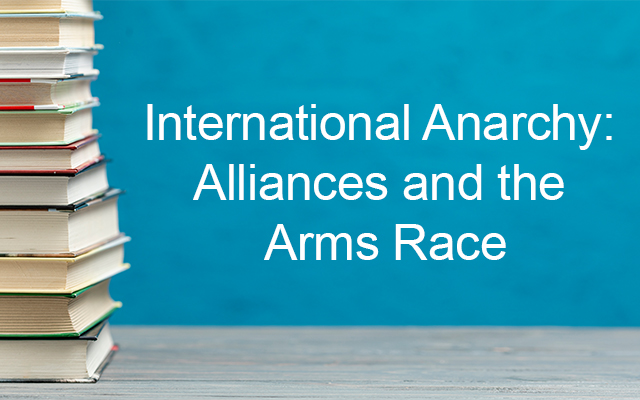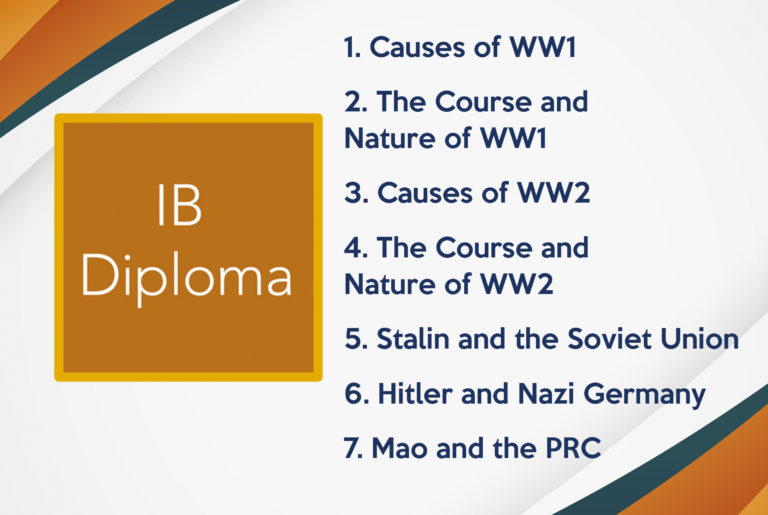Working backwards to explain WW1.
I have long thought that the best way to make sense as to why a major war, and not a localised war, or no war at all, broke out in 1914 is to take the assassination of Archduke Ferdinand in Sarajevo and work backwards. But we have to ask the right questions. Good history is, after all, concerned with just that: asking questions and seeking answers.
Take what I have already written as a starting point and you can see where I’m going (not hard, I’ve already said I’m going backwards!). What was Archduke Ferdinand doing in Sarajevo? And why was his assassination of any concern to anyone other than the Austrians?
Now jump forward to the July Crisis. We have the frantic diplomacy, the blank cheque, the ultimatum, the mobilisations and the declarations of war. What was the French president and prime minister doing in St Petersburg? Why did Austria-Hungary send an envoy to Berlin to be sure of its support, and why did the Germans offer their blank cheque? Finally, why were the Germans so worried about Britain? And why were the Russians so determined to support Serbia? None of the answers are found in July. We have to go back.
The first and last questions – What was Archduke Ferdinand doing in Sarajevo? Why were the Russians so determined to support Serbia? – send us off to examine the recent history of the Balkans and we will find it to be the epicentre of a crisis that had been a century in coming, and had repeatedly been close to
causing a general European war since the Eastern Crisis of 1875-8. This will show us why both Austria and Russia wanted to increase their influence in the region, and why they felt in 1914 that they simply couldn’t back down. Austria-Hungary, because it felt it had to deal with the Serbs once and for all or their multi-national empire (which included millions of Slavs) would disintegrate. Russia, because of the humiliation over the Treaty of Berlin in 1878 which had given Austria-Hungary control over Bosnia-Herzegovina and Austria-Hungary’s annexation of Bosnia-Herzegovina in 1908. The fact that Russia would find it hard to back down again, helps explain why Austria-Hungary felt a need for German support in dealing with the Serbs – as Count Hoyos, the Austro-Hungarian envoy, later reflected, ‘No one today can imagine how strongly we at that time believed in German power, in the invincibility of the German army’.1 – and having got German support, Austria-Hungary’s history with the Serbs and with Slavs in general, shows why the ultimatum they sent Serbia was so harsh as to almost guarantee war. And by looking back at Balkan
history, we will see why Russia felt it couldn’t back down again.
But it still need not have come to war, even a localised Balkan war. Our examination of Balkan history will also have shown us how the major powers had avoided fighting each other in the past, or at least since the Crimean War. Indeed, Europe had grown accustomed to living through crises and finding a way out of them: the Moroccan crises, the Balkan Wars and Austria-Hungary’s annexation of Bosnia-Herzegovina immediately spring to mind. But for war to be avoided, other powers would need to urge constraint on Austria-Hungary and Russia. Why didn’t this happen. Why did the Kaiser spit fire and fury? He noted in the margin of a telegram he had received from his ambassador in Vienna on June 30th, just days after the assassination, ‘The Serbs must be disposed of, and that right soon!’2
To understand the Kaiser’s reaction we need to examine his personal foreign policy: Weltpolitik. And note that it had badly failed. For an examination of Weltpolitik will show how Germany’s blundering foreign initiatives, particularly the two Moroccan crises, and Wilhelm’s obsession with having a navy to rival Britain’s, led not only to a naval race with Britain but drove Britain towards two historical rivals (France and Russia) and to the perception in London, Paris and Petrograd (soon to be renamed St Petersburg) that Germany, or at least Wilhelm, was a danger to peace. And it helps to explain how it was that Germany came to see itself as surrounded by hostile powers.
It helps also to explain what has been referred to as ‘international anarchy’, the build-up of two increasingly heavily armed alliance systems: the Triple Alliance of Germany, Austria-Hungary and Italy versus the Triple Entente of France, Russia and Britain, with their military plans to defeat each other. This, in turn, leads us to understand the importance placed on mobilising early in the July Crisis.
But we will have to step a little further back in time, to German unification, to fully understand France’s position and to understand the lessons that were learnt from Prussia’s stunning military victories against first, Austria and then, France. Now we can see why France was desperate for an alliance to protect it from further possible German aggression, and why it felt it needed to support Russia following Germany’s blank cheque to Austria-Hungary.
Now you can see why the Archdukes assassination was of concern to all the major European powers, and why a local crisis became a general crisis. And I hope you can see how asking the right questions can lead us to better explain events and why working backwards isn’t as crazy as it might at first seem.
1 Quoted in Margaret MacMillan, The War That Ended Peace, p. 523
2 Quoted in Martin Gilbert, First World War, p. 18





